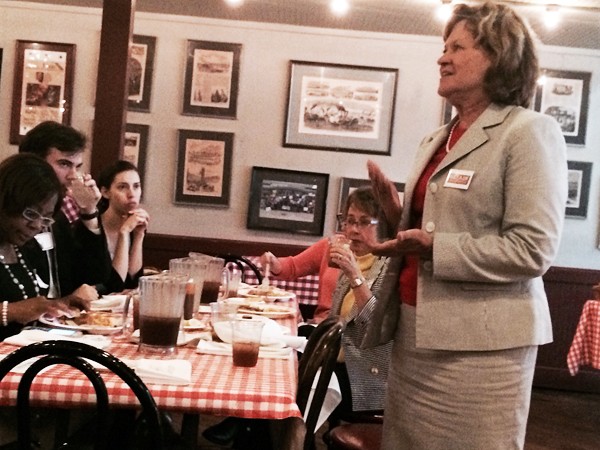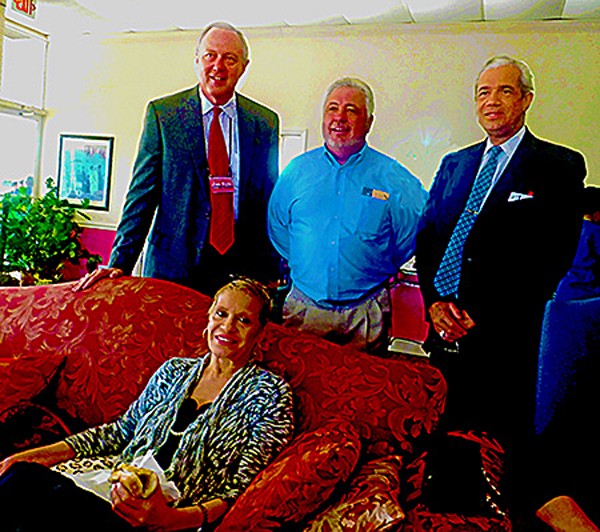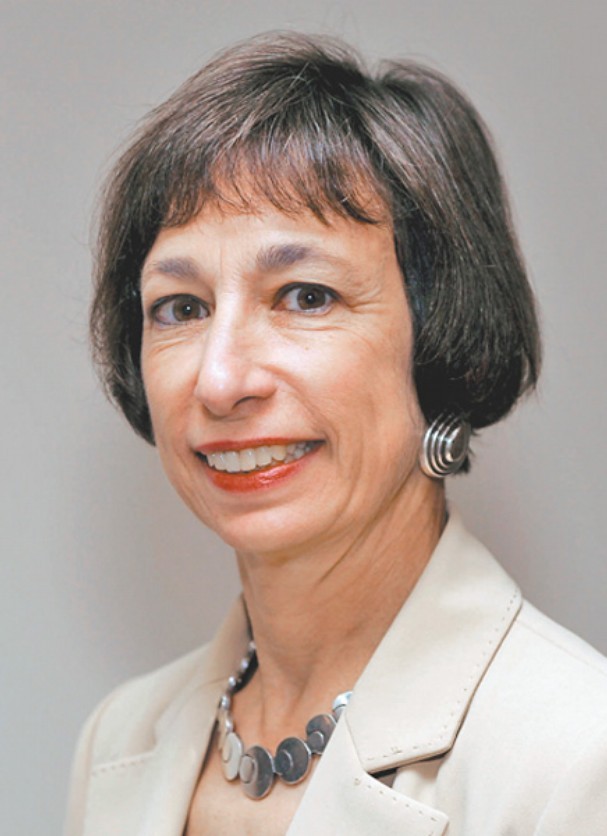In most elections, there is something called a “down ballot,” consisting of races that, for one reason or another, do not draw media or public attention to the same degree as a few widely noticed marquee races.
The August 7th election ballot in Shelby County is the kind of lengthy one that invites such potential lacunae, but be advised: Some of those potentially overlooked ballot matters are crucial indeed.
The best example is the ballot’s final section, headed “Statewide General Election” and consisting of several “retention” choices in which voters are asked to decide whether to retain or to replace members of the state’s appellate judicial core.
At the very top of this list is the most crucial section, featuring the names of three of the five members of the state Supreme Court — Chief Justice Gary Wade and Justices Cornelia A. Clark and Sharon Gail Lee. These three justices, all appointees of former Governor Phil Bredesen, a Democrat, have been targeted for replacement by Lieutenant Governor Ron Ramsey and other members of the state Republican establishment.
A serious and financially well-endowed campaign has been mounted against the three justices by Ramsey et al., abetted by Tea Party backers and other major donors from around the nation. Supporters of the justices, who are enjoined by the canon of judicial ethics from saying very much in their own defense, have organized a counter-campaign, and the fat, as they say, is in the fire.
Should any or all members of the beleaguered trio fail to receive a majority for retention, Governor Bill Haslam has the duty of naming their replacements. Haslam, who has already had the opportunity to name replacements for two retiring judges, has adopted a hands-off position toward the judicial purge campaign, though members of his traditional support group are said to be working against it.
Former members of the state judiciary are opposing the purge campaign more overtly — notably former Chief Justice Mickey Barker of Chattanooga, a Republican, who has appeared in TV ads urging voters to retain the three justices, who have journeyed to Memphis as an ensemble more than once this year and were the guests at a Memphis Bar Association reception last Friday.
 Jackson Baker
Jackson Baker
Justice Sharon Lee addressing Memphis group at Rendezvous
Justice Lee even stayed behind over the weekend to go door-to-door asking voters to vote for retention.
Almost as far down on the ballot as the judicial retention section is a portion listing candidates for seven of the nine Shelby County Schools (SCS) board positions. Most of the races are considered to be tight, notably one for District 1, pitting incumbent Chris Caldwell against his former colleague on the erstwhile 23-member transitional city/county board, Freda Garner-William. They ran against each other once before, in the 2012 election for the original seven-member post-merger SCS board, with Caldwell coming out ahead.
Other contests feature Teddy King, Anthony D. Lockhart, and Stephanie Love in District 2; Scott McCormick and David Winston in District 3; Shante K. Avant (incumbent) and Jimmy L. Warren in District 6; and Roshun Austin, Mike Kernell, and Damon Curry Morris in District 9.
The election is for a new nine-member SCS board, representing only Memphis and unincorporated areas of outer Shelby County, to replace the former SCS board, which covered the entire county. New districts were drawn by the County Commission in the wake of Shelby County’s six suburban municipalities forming their own districts.
Presumably only party activists will be drawn to the section of the ballot consisting of choices for the state executive committee of the Republican and Democratic parties. Suffice it to say that there are a surprising number of contests on both sides of the party line, and, of course, a voter must choose either the Republican slate or the Democratic one. You can’t do both.
The same choice is necessary in deciding on nominees for governor and United States senator, and for the 8th and 9th Congressional Districts.
Though perhaps they should have been, Dana Matheny and John Mills, Republican candidates in the 8th District to oppose incumbent congressman Stephen Fincher were not mentioned in this week’s cover story, nor were Wes Bradley, Rickey Hobson, Lawrence A. Pivnick, and Tom Reasons, Democratic candidates in that race.
That omission is repaired here. Nobody imagines that any of the above have a chance to win, but most of them have been putting themselves, their energy, and their convictions on the line, and they are entitled to recognition of the fact, as is Isaac Richmond, the also-ran in the 9th District Democratic primary.
(Richmond got his unexpected due two weeks ago when incumbent Steve Cohen was asked what he knew of the position his “opponent” had taken on this or that matter. “I don’t know what Isaac Richmond has done,” Cohen answered straight-facedly.)
Voters will also have to choose whether to vote Democratic or Republican on a few contested primary races for the state legislature.
In the Democratic primary for the 84th District of the House of Representatives, longtime incumbent Joe Towns is opposed by Kenneth L. Wells. In the 91st House District, both Republicans and Democrats have choices. Samuel A. Arthur Watkins and Orrden Williams Jr. are the GOP contenders, and incumbent Raumesh A. Akbari, winner of a special election for the seat last year, is opposed by another contender in that 2013 race, Doris Deberry-Bradshaw.
A more closely observed race is taking place for the right to represent District 29 of the state Senate. Two Republicans are running, James R. “Jim” Finney and Anthony D. Herron Jr. but the real contest is on the other side of the party line in this heavily Democratic south-side district.
 Jackson Baker
Jackson Baker
Ophelia Ford with supporters
Ophelia Ford, a member of the extended Ford political family, has held sway in the 29th since eking out a win in a 2005 special election to replace her brother, former state Senator John Ford, in the wake of the Tennessee Waltz scandal.
That race, against Republican Terry Roland, produced scandals of its own, notably when it was confirmed that a pair of dead people had somehow managed to vote for winner Ford. The seat was declared vacant, and Ford won the revote with room to spare.
But her tenure has been plagued with long absences and with Ford’s occasionally bizarre behavior, both in and out of the Senate chamber. All of this presented City Council member Lee Harris with an opportunity, and Harris is running hard to unseat Ford in the District 2 Senate primary. He takes care not to impugn the Ford family or tradition, even conferring occasional praise on both, but he stints no words in pointing out his opponent’s notorious absentee record, one which he says ill serves the district.
Should he win, Harris would become the first person to unseat a Ford-family member running for reelection, and it is undoubtedly in recognition of that fact that members of the Ford clan turned out en masse for a rare recent public event of the Senator’s. Also present, surprisingly, was erstwhile GOP foe Roland.
Finally, in addition to the judicial retention races late in the ballot, there are contested races for trial judges listed further up. There are some 81 candidates in all vying for positions in Circuit and Criminal Court, Probate Court, Chancery Court, and the civil and criminal divisions of General Sessions Court.
A good deal of controversy has arisen regarding the plethora of endorsements made in the judicial races by this or that self-serving group, including the local Republican and Democratic parties. Both political parties laid primary stress on the real or imagined political loyalties of potential endorsees, and the Democrats in particular found themselves engaged in mutual recriminations over alleged lapses and misjudgment in their final endorsee list.
Even more questionable are the several endorsement “ballots” being circulated by private individuals, who customarily charge candidates substantial sums for the right to be included (or, alternatively, to have their opponents excluded).
Once again this week, readers will find on page 18 of the Flyer a race-by-race evaluation of the contenders by members of the Memphis Bar Association, whose members presumably have the best and most objective vantage points in sorting out the candidates from one another.
For a look at what the August 7th ballot looks like, try this online link: http://shelbyvote.com/DocumentCenter/View/9863.
